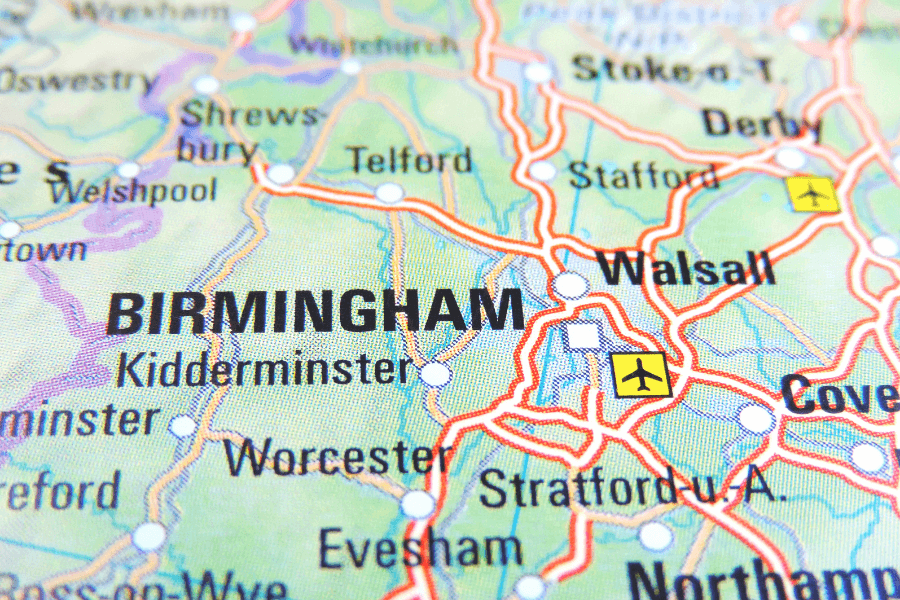
Anne Green looks back at the achievements of the now-defunct Greater Birmingham and Solihull Local Enterprise Partnership (GBSLEP), summarising some of the findings from our report about the partnership – From Vision to Legacy.
What were the Local Enterprise Partnerships?
Local Enterprise Partnerships (LEPs) were non-statutory bodies responsible for local economic development in England, until their funding ended in March 2024. These business-led partnerships united the private sector, local authorities, and academic and voluntary institutions. LEPs prioritised policies and actions based on clear economic evidence and intelligence from businesses and local communities. Their interventions aimed to improve productivity across the local economy, benefiting people and communities while fostering more inclusive economies.
LEPs collaborated with local authorities in several ways to drive economic growth and development. Some key aspects of their collaboration included:
- Strategic Planning and Prioritisation: The LEPs aimed to work closely with local authorities to develop strategic plans for their sub-regions.
- Infrastructure Investment: The LEPs aimed to collaborate with local authorities to identify infrastructure needs.
- Skills and Workforce Development: The LEPs partnered with local authorities to address skills gaps and workforce development.
- Business Support and Innovation: The LEPs and local authorities aimed to jointly support businesses.
- Regeneration and Place-Making: Collaborating on regeneration projects, LEPs and local authorities enhanced public spaces, attract investment, and improved quality of life.
- Policy Advocacy: The LEPs and local authorities advocated for policies that benefited the local economy.
The specifics of collaboration varied on the unique context of each LEP and its local authority partners.
The Greater Birmingham and Solihull Local Enterprise Partnership (GBSLEP)
GBSLEP was set up in 2011 and operated until March 2024. It was a partnership of business, public sector and further and higher education leaders with a mission to drive inclusive and sustainable economic growth in the Greater Birmingham and Solihull area. It consisted of nine local authorities:
- Birmingham
- East Staffordshire
- Cannock Chase
- Lichfield
- Tamworth
- Wyre Forest
- Bromsgrove
- Redditch
It was one of the largest partnerships in the country, covering a population of over 1.96 million people and supporting approximately 840,000 jobs.

Key programmes of work
Strategy for Growth
Published in 2013, this strategy set a clear goal to regain Greater Birmingham & Solihull’s status as the major driver of the national economy outside of London.
2019 Local Industrial Strategy
Working in collaboration with the Black Country LEP and the Coventry & Warwickshire LEP, the GBSLEP took the lead on the development of five high-growth sectors originally identified in the West Midlands Industrial Strategy:
- Business, professional and financial services (BPFS)
- Creative industries
- Data-driven health and life sciences
- Advanced manufacturing – food and drink
- Low carbon and energy technology
The GBSLEP led the growth strategy for the region’s business professional and financial services sector and launched SuperTech – a dedicated ProfTech supercluster in 2021.
SuperTech brought together established business and financial firms, alongside rapidly growing FinTech (financial technology), PropTech (property technology) and LawTech (technology for legal services) organisations.
The aim was to establish Birmingham and the region as a centre of next-generation services by enabling technology-led evolution, building innovation capacity and enhancing connectivity between businesses to accelerate ecosystem development. It has also been at the forefront of developing digital skills for innovation.
GBSELP Growth Hub
The GBSLEP’s Growth Hub, which was led, managed and partly funded by the GBSLEP, operated from 2015 to 2023. It improved access to business support and finance through various national and European-funded programmes.
Key statistics from the GBSLEP Growth Hub Impact Report 2016-2023 illustrate the scale of its activity and impact:
- £18.3M – private sector leverage
- £103M turnover increase amongst businesses that received three or more hours of support from the Growth Hub since 2016
- 4,623 jobs created
- 8,528 – jobs safeguarded
- Support for 7,189 businesses in the GBSLEP area
- £16.37 value created in the GBLSEP area for every £1 invested
- £23 turnover increase for businesses as a direct result of business support provided by the GBSLEP Growth Hub
Local Growth Fund
Working in partnership with local authorities, businesses and the educational sector GBSLEP managed the Local Growth Fund which supported strategic investment decisions on mainly capital projects, to unlock inclusive and sustainable economic growth. The partnership model of engaging with political and business leaders, ensured effective allocation of £207.9M between 2016 and 2021, funding 100 projects, 69 of which had innovation at their heart.

Enterprise Zone Fund
The GBSLEP worked closely with partners to unlock sites for development and to co-invest in master planning, urban design and improvements to create green infrastructure and accessibility for businesses to grow through the Enterprise Zone Fund. High-profile sites representing significant growth opportunities in the city included Paradise and HS2’s Curzon Street Station. By using the uplift in business rates generated by these developments and investing in priority schemes, GBSLEP was instrumental in driving inclusive and sustainable economic recovery.
Skills
GBSLEP worked closely with higher and further education institutions, alongside private training providers, to develop the region’s skills.
It helped establish the Commonwealth Games Volunteer Programme for young people – Gen22. This was designed to equip a younger workforce, particularly those facing labour market barriers, with training and skills to apply for Games-related jobs and placements.
GBSLEP funded the Greater Birmingham Ladder from the outset in 2018, working collaboratively to create local solutions to a national problem – upskilling, filling vacancies, working with schools, supporting apprentices through the pandemic and engaging with diverse communities. Around 40% of apprenticeships starting through the Ladder were from BAME communities. Its commitment to sustainable investment also saw £273k invested in the Ladder Skills Academy which opened in Spring 2023.
Conclusion
The work of the GBSLEP demonstrates the power of collaborative partnerships which has enabled evidence-based, locally informed investment and project decisions to be made for the benefit of all our communities. GBLSEP was able to take moderate amounts of government funding to leverage substantial investments from both the public and private sectors. For every £1 the GBLSEP spent, £3 was generated – making public money go further.
Find out more in our report about the GBSLEP – From Vision to Legacy.
This blog was written by Anne Green, Professor of Regional Economic Development and Co-director at City-REDI , University of Birmingham.
Disclaimer:
The views expressed in this analysis post are those of the author and not necessarily those of City-REDI or the University of Birmingham.
